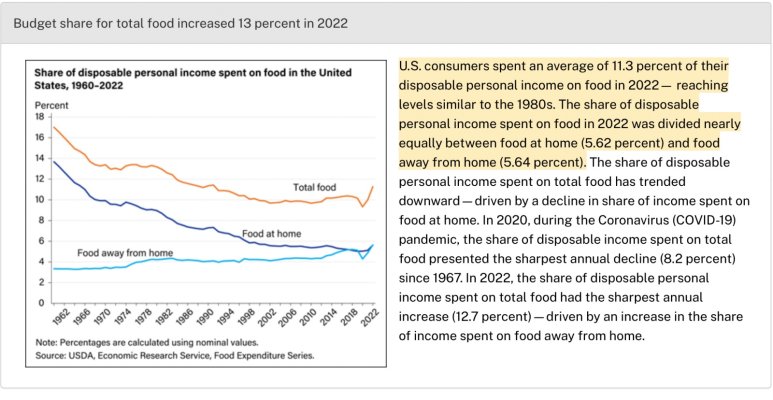I want to weigh in on this government numbers thing. It is no secret that I am of the persuasion that would like to see less government, and less government interference. My first instinct is not to defend the government bureaucracy.
That said, I think the government is doing their best with the CPI calculation.
I've said this before, and I'm going to say it again. There is no mystery here. The CPI calculation is there for all to see, including the relative importance of each item. (
https://www.bls.gov/news.release/pdf/cpi.pdf) There is some judgement by the buyers of the basket of goods, and the survey samplers, but I believe this washes out over time and buyer turn-over.
Some may say it doesn't reflect their reality. True. Most people don't smoke, but tobacco products are in the CPI. Yet it reflects the reality of the larger population by slowly decreasing in importance through the years.
Even when the numbers are mysterious, the BLS has reports to explain it. Right now, the CPI is enjoying a non-reality number of MINUS 30% for health insurance, year over year. That's crazy. I won't get into why it is this way, but the BLS has explained it. We better hold onto our hats because this is going to reverse in two months.
And shelter is another one. It is calculated completely differently than 40 years ago. This fact absolutely "hid" immediate inflation 2 years ago. Using the old calculations, the CPI would have been over 10% for a few months. But we're paying for it now. The inflation doves are complaining now that shelter is persisting at a higher rate than "they think" it should. Yeah, it works both ways. Hawks and doves complain about the numbers.
And shelter conflates homeowners insurance in a subtle way. It is not directly part of the the CPI. It is part of OER, which is part of shelter. In my opinion, it is one reason I think shelter is going to be hot longer than the doves believe, because OER is getting impacted by the lagging rise in homeowners insurance.

